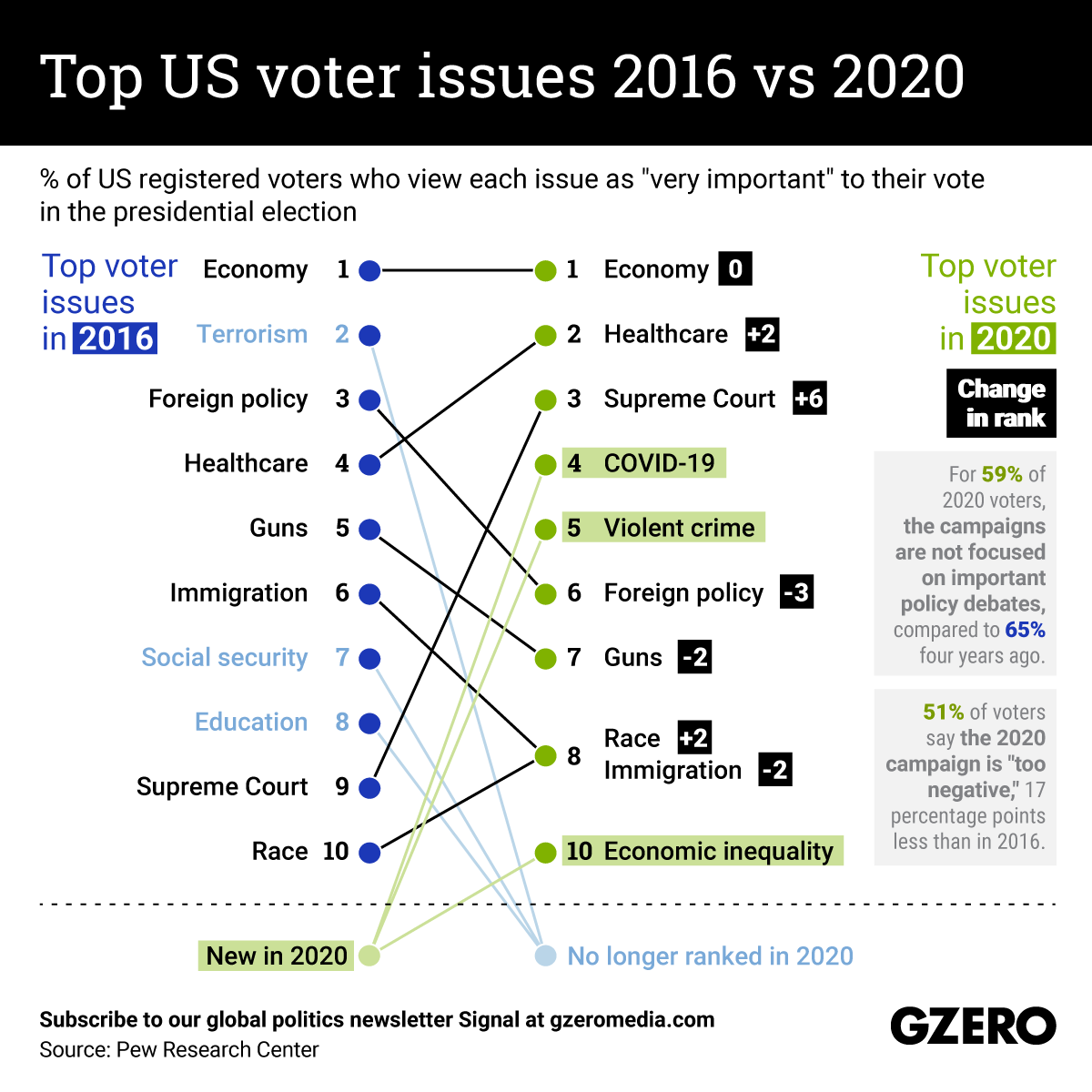October 30, 2020
When Americans vote for president, the economy is (almost) always front and center, as Democratic strategist James Carville famously predicted in 1992, when he was the brainchild of Bill Clinton's successful "It's the economy, stupid" campaign message. But beyond the country's economic future, other issues are also on voters' minds when deciding on casting their ballot for the Democratic or Republican candidate. For instance, Pew surveys show that the 2020 electorate is more worried about the Supreme Court, violent crime and race than they were four years ago, while the coronavirus pandemic has become a major concern. On the other hand, foreign policy, guns and immigration are not as important now as they were in 2016. We compare the top 10 issues for voters in 2016 and 2020.
More For You
A photograph posted by U.S. President Donald Trump on his Truth Social account shows him sitting next to CIA Director John Ratcliffe as they watch the U.S. military operation in Venezuela from Trump's Mar a Lago resort, in Palm Beach, Florida, U.S., January 3, 2026.
@realDonaldTrump/Handout via REUTERS
Most Popular
- YouTube
In this "ask ian," Ian Bremmer analyzes Trump’s recent meeting with Zelensky and how close (or far) Russia and Ukraine are from a peace deal.
Syrian President Ahmed al-Sharaa attends the military parade of the Syrian army in Umayyad Square in central Damascus to mark the one-year anniversary of the fall of the Assad regime, on Dec. 8, 2025.
Mohammed Al-Rifai/dpa via Reuters Connect
A year ago this month, Syria’s brutal dictatorship collapsed. There are signs of recovery, but sectarian violence threatens to undermine the optimism.
© 2025 GZERO Media. All Rights Reserved | A Eurasia Group media company.
